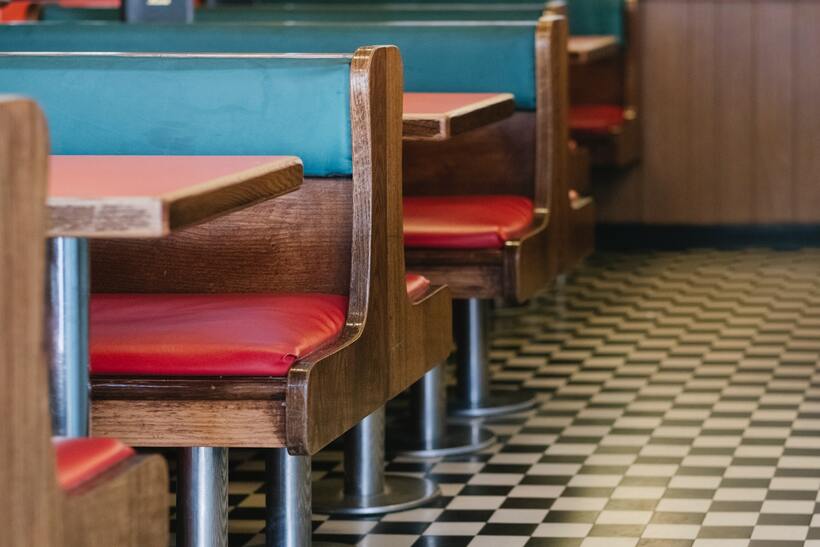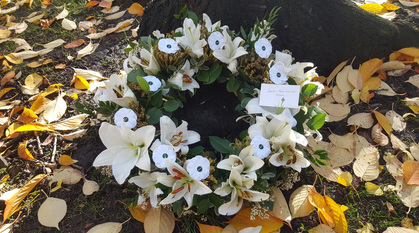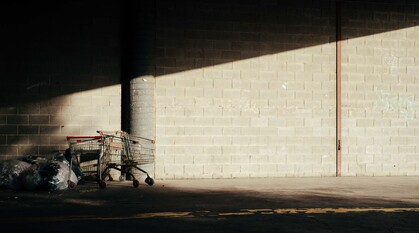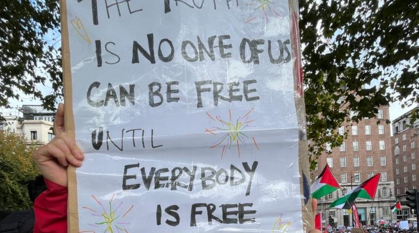Giving in a time of uncertainty
As the cost of living spirals, Beth Follini looks at how the principle of equal generosity can continue to sustain Quaker work.

When I was a child, I was struck by how differently my parents saw the price of a large glass of chocolate milk. It always puzzled me. In the diner, sitting on the sticky red vinyl seat of a booth, I would scan the menu and feel anxious.
"Go on, order what you want", my mum would say encouragingly. I really wanted a large glass of chocolate milk, which was $1. I drew my finger down and hesitated. "No, too expensive", my dad would say bluntly while my mum rolled her eyes and sighed. I always ordered the small glass, which was 30 cents cheaper.
To my dad, a dollar was too expensive. To my mum, that same dollar was nothing. As a child, I could only understand this as my mum being more permissive than my dad.
But it's only recently I've come to understand that their different perspectives on money had been shaped by their individual circumstances in life. While my mum grew up in a comfortable middle-class family in Connecticut, my dad came from a working-class migrant Italian-Polish family – money was tight, their future rife with uncertainty.
Equal generosity
The current inflationary crisis has reminded me of this story, and of how much my dad must have been affected by his childhood experience of poverty. My parents viewed $1 and the saving of 30 cents so differently. Reflecting on this, I've realised just how important the Quaker principle of equal generosity is right now.
At Britain Yearly Meeting (BYM) we know that there are Friends who won't be able to give, who will be making difficult choices, whose finances will be reduced. Rising food and energy prices mean that some Friends won't be able to afford to donate to Quaker work. Sparing just £1 a month could be tough.
It's Quaker practice for pastoral care committees (overseers) in local and area meetings to ensure that those who are struggling are not asked to contribute financially. This practice is aligned to the Quaker principle of equal generosity, which asks Friends who are financially able to consider giving a little bit more to compensate for those who can't.
Resourcing Quaker work
We recently started a group of Giving Advocates. These are Friends who are keen to support treasurers and collectors in gathering contributions and raising funds for the work of Quaker meetings and BYM. The group has considered how Friends might determine an appropriate amount for an individual to give.
Some Friends, like me, look at what they spend on leisure and try to give a proportional sum to their meeting and BYM. For example, I give £25 a month to my local meeting and the same to BYM.
Some Friends I've spoken to follow the widespread practice of giving 10 per cent of their income to Quaker work. Others take the question with them to meeting for worship: "What am I called to give to Quaker work?"
Giving money and service supports the work at all levels of the Society of Friends. It's integral to how Quaker work is resourced. As one Friend said to me, "the Society can't live on love and air alone".
If every member and attender gave according to their income and needs, Quaker work would continue to benefit Quakers and the world for years to come. It would help to ensure that Quaker work is there for everyone, whatever their circumstances.
For information on how to give, go to www.quaker.org.uk/giving.
If you'd like to join the network of Giving Advocates, visit www.quaker.org.uk/giving-advocates.
To find out more about our Hope Grants, go to www.quaker.org.uk/hopegrants.


